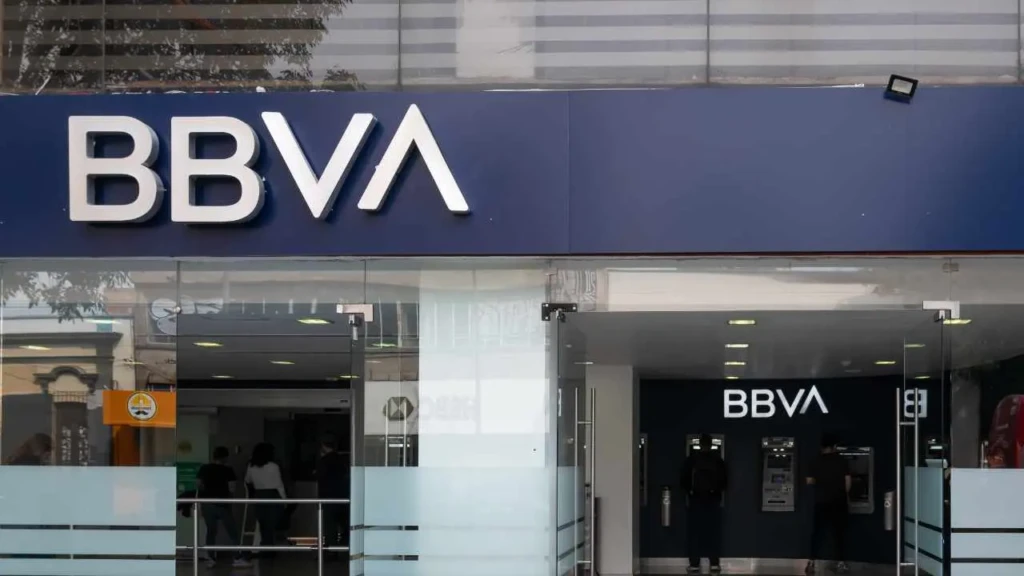Is BBVA Crypto Friendly?
Is BBVA crypto friendly? That question is increasingly relevant as traditional banks grapple with the explosive growth of digital assets. Banco Bilbao Vizcaya Argentaria (BBVA), Spain’s second-largest bank and a global financial powerhouse, has drawn attention for its evolving stance on cryptocurrencies. From early blockchain experiments to launching a Bitcoin trading service for Swiss clients, BBVA offers a nuanced example of how a major European bank is integrating crypto into its offerings—while still respecting regulatory constraints.
This investigative report examines BBVA’s crypto policies, services, and strategic outlook to determine whether the bank deserves the “crypto-friendly” label.
BBVA’s Crypto Journey: From Skepticism to Integration
Early Blockchain Experiments
BBVA’s initial steps into crypto date back to 2018, when it conducted blockchain-based syndicated loans and began exploring distributed ledger technology for cross-border payments. These pilots, reported by Reuters and other outlets, revealed a pragmatic approach: leverage blockchain efficiency without fully endorsing public cryptocurrencies.
The Swiss Bitcoin Trading Service
In 2021, BBVA launched a regulated Bitcoin trading and custody platform in Switzerland through BBVA Switzerland. This move made it one of the first major European banks to provide direct crypto exposure. Swiss clients can buy, sell, and hold Bitcoin via BBVA’s mobile app, integrated seamlessly with traditional investment accounts.
This initiative positioned BBVA ahead of many peers, demonstrating a willingness to meet client demand for digital assets—at least in a tightly regulated environment.
How BBVA Treats Crypto Customers Elsewhere
Spain and the EU
Despite the Swiss rollout, BBVA’s main operations in Spain and the European Union remain conservative. The bank does not yet offer crypto trading in these markets. Spanish regulators, particularly the Bank of Spain and the European Central Bank, maintain strict anti-money-laundering (AML) standards that make large-scale crypto services more complex.
Account holders can generally transfer funds to reputable crypto exchanges, but BBVA applies standard AML checks and may flag suspicious activity. Customers report that routine crypto transactions usually proceed without issue if documentation is clear.
Latin America and the U.S.
In Latin America—where BBVA has strong operations in Mexico, Colombia, and Peru—the approach is similar. Crypto-related businesses must comply with local financial regulations, and BBVA requires thorough Know Your Customer (KYC) verification for high-value transfers.
In the United States, BBVA (now part of PNC Financial Services) no longer offers direct crypto products, but personal and business clients typically can fund crypto exchanges such as Coinbase, subject to AML scrutiny.
Comparing BBVA to Other Global Banks
Compared with peers like Santander or HSBC, BBVA’s Swiss Bitcoin service is relatively progressive. Santander has invested in blockchain infrastructure but has not launched retail crypto trading. HSBC remains cautious, even restricting credit card purchases of cryptocurrency in some regions.
BBVA’s balance between innovation and regulation places it in a middle tier: more crypto-friendly than banks that outright ban crypto transactions, yet not as aggressive as fintech-driven institutions such as Revolut or neobanks like N26.
Corporate Strategy: Blockchain Beyond Bitcoin
Tokenization and DeFi Exploration
BBVA’s research teams continue to explore tokenization of traditional assets, such as bonds and real estate. The bank has participated in pilot projects with the European Investment Bank and the Spanish stock exchange to issue blockchain-based securities.
This forward-looking strategy suggests BBVA views blockchain as a transformative technology even if public crypto adoption remains gradual.
Risk and Compliance
BBVA executives emphasize that regulatory clarity is critical. In interviews, they note that any expansion of crypto services depends on frameworks like the EU’s Markets in Crypto-Assets (MiCA) regulation, expected to take full effect in 2025.
European Central Bank MiCA overview provides details on the upcoming regulation shaping banks’ crypto offerings.
Customer Experience: Accounts, Fees, and Security
Opening an Account for Crypto Use
For individuals seeking to use BBVA accounts for crypto investing, the process is straightforward: maintain full KYC documentation and ensure that transfers are to and from reputable exchanges. BBVA’s digital banking platform supports international wire transfers and SEPA payments, commonly used for crypto purchases.
Fees and Conversion
BBVA charges standard international transfer fees. The Swiss Bitcoin service adds a small commission per trade, competitive with major exchanges, and provides institutional-grade custody.
Security Measures
BBVA employs multi-layer cybersecurity and insurance options for its Swiss crypto custody, aligning with best practices in the industry.
FAQ: Is BBVA Crypto Friendly?
Is BBVA crypto friendly for everyday customers?
Yes, BBVA is generally crypto friendly for customers who comply with AML and KYC regulations, allowing transfers to reputable exchanges.
Does BBVA offer crypto trading services?
BBVA offers Bitcoin trading and custody exclusively through its Swiss subsidiary, making it one of the few major banks to provide direct crypto exposure.
Can BBVA accounts be used to fund crypto exchanges?
Yes, BBVA accounts can fund crypto exchanges, though transactions may be subject to compliance checks to prevent money laundering.
Will BBVA expand its crypto services globally?
BBVA has signaled interest in expanding services depending on regulatory clarity, particularly with the upcoming EU MiCA framework.
Analytical Conclusion: BBVA’s Crypto Future
So, is BBVA crypto friendly? The evidence suggests a qualified yes. BBVA stands out among traditional banks for its pioneering Swiss Bitcoin platform and continued blockchain exploration. Yet its services remain geographically limited and bound by strict regulatory oversight.
As global crypto regulations mature—especially in the European Union—BBVA is well-positioned to scale its offerings. Investors and customers seeking a bank that bridges traditional finance and digital assets should watch BBVA closely. Its strategy shows that a legacy institution can embrace innovation while maintaining the compliance and stability that large-scale banking demands.

